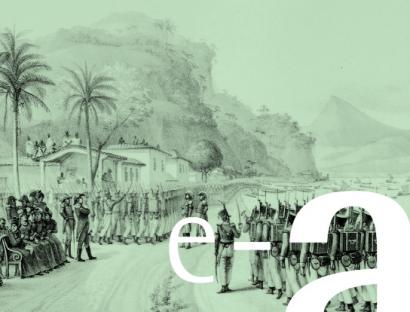The invention of Sete de Setembro, 1822-1831
DOI:
https://doi.org/10.11606/issn.1808-8139.v0i11p52-61Keywords:
national identity, political representation, Rio de Janeiro, Independence, civic rituals, First ReignAbstract
Using contemporary newspapers, travelers accounts, and the reports of foreign diplomats, this article examines the rapid invention of D. Pedro I's 7 September 1822 Cry of Ipiranga as Brazil's independence day. Contrary to those who have argued that it took some time to construct D. Pedro's actions that day as the Brazilian nation's founding moment, this article argues that, in fact, the day was recognized as Brazil's independence day in 1823. However, for much of the rest of the 1820s, it was considered less important a day of national festivity than 12 October, the emperor's birthday and the commemoration of his acclamation in 1822, and consequently the day on which the Brazilian empire was created. This article concludes with a discussion of the significant changes in the meaning of both days in 1830 and the abolition of 12 October as a day of national festivity in 1831, which left 7 September as Brazil's most important national holiday.Downloads
Downloads
Published
Issue
Section
License
Copyright (c) 2010 Hendrik Kraay

This work is licensed under a Creative Commons Attribution-NonCommercial 4.0 International License.
In the Editorial Guidelines, available in the website, readers are informed that all authors transfer to Almanack Braziliense the exclusive rights of reproduction of submitted manuscripts, implying acceptance of all items listed in the “Submission Guidelines” page. Authors are also informed that they are fully responsible for the reproduction rights of the images they provide.
The Journal has no constraints regarding the free reproduction of the texts available in the website, either by printing, photocopying or by any other means of reproduction.



